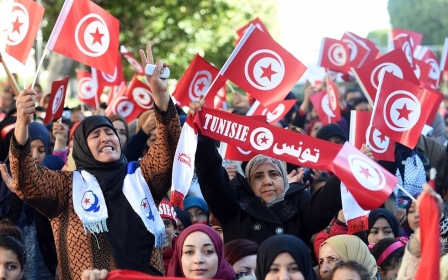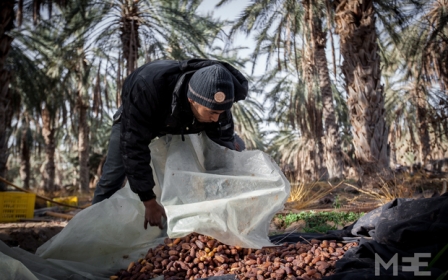Tunisia 'truth panel' receives 65,000 human rights complaints

A panel tasked with uncovering truth about human rights violations under Tunisia's autocratic rulers before its 2011 revolution said on Friday it has received 65,000 complaints.
The Truth and Dignity Commission is tracking abuses committed between July 1955 - a year before Tunisia gained its independence from France - and December 2013, when the fact-finding body was set up.
The period effectively covers the rules of prime ministers Habib Bourguiba, that of his successor Zine El Abidine Ben Ali, who was ousted in the 2011 uprising, and the first post-revolutionary governments.
Commission head Sihem Bensedrine told a news conference they had received a slew of complaints including of "torture ... arbitrary detentions ... physical abuse ... violations of freedom of speech".
Some plaintiffs charged that they had been denied the right to work, while others said they had been prevented from getting fair trials.
"The violation of freedom of expression is almost always there," Bensedrine said.
She said the plaintiffs came from all walks of life, including Islamists who were heavily repressed under Ben Ali, opposition parties, activists, non-governmental organisations and union members.
About 13,000 women were among those filing complaints, she said.
Members of the Amazigh Berber minority and Tunisia's Jewish community also filed complaints claiming religious, cultural or ethnic discrimination, she said.
The commission, which has full access to state archives, aims to identify those responsible for abuses, hold them accountable and to rehabilitate and compensate victims.
Its remit covers violations of human rights - notably voluntary homicide, rape, extrajudicial executions and torture - by "state bodies, groups or individuals acting in its name or under its protection".
The commission, comprising human rights activists and representatives of victim groups, was one of the first bodies set up under a Transitional Justice Law passed in 2013.
Stay informed with MEE's newsletters
Sign up to get the latest alerts, insights and analysis, starting with Turkey Unpacked
Middle East Eye delivers independent and unrivalled coverage and analysis of the Middle East, North Africa and beyond. To learn more about republishing this content and the associated fees, please fill out this form. More about MEE can be found here.




